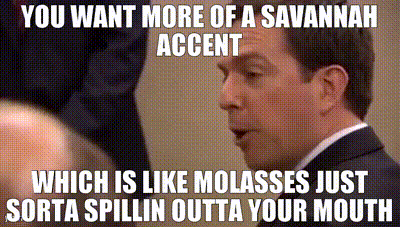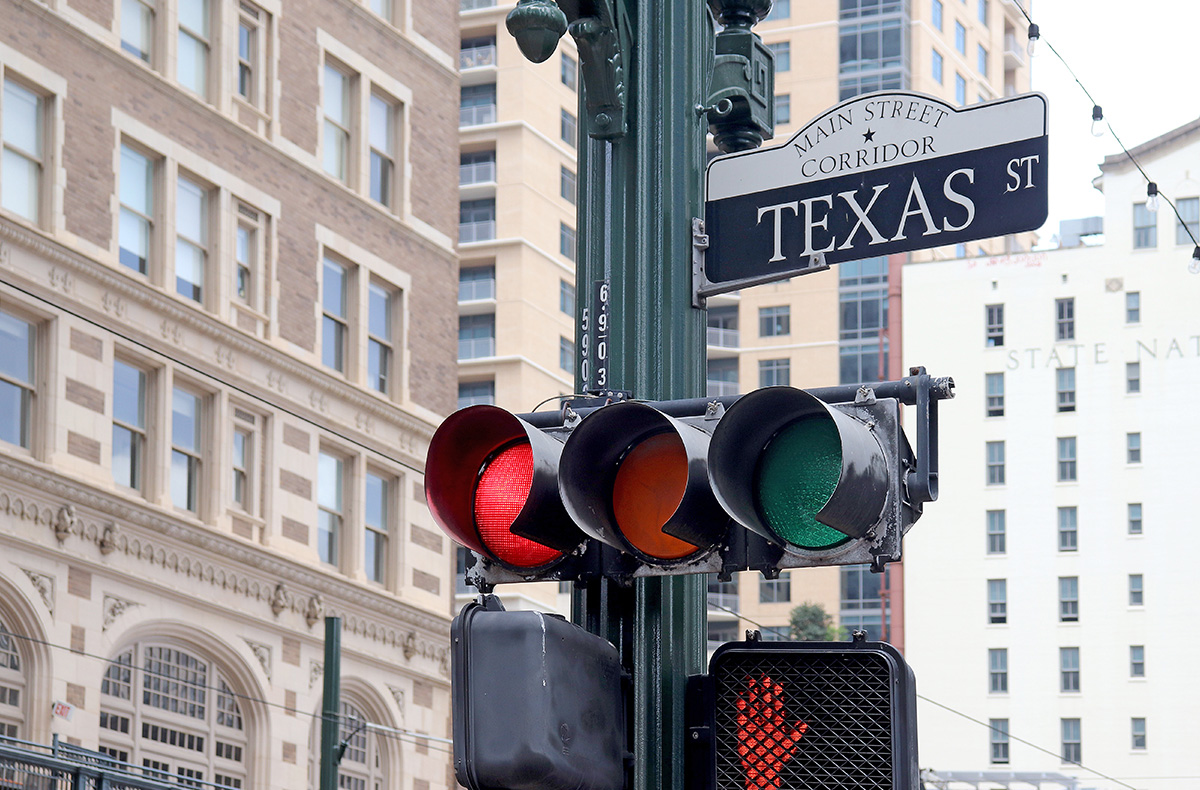A kindly-looking granny in her Sunday best sees you walking down the street and comments, “Well bless your heart, sugar. That is quite the shirt.” You thank her and saunter away a little prouder. Congratulations, you’ve just been insulted.
The Southern belle accent may sound sweet as honey, but like the seemingly innocuous “bless your heart,” there may be a bit of a sting in there as well. In fiction and Hollywood, the stereotypical Southern accent was commonly used to present a friendly yet unsophisticated character, but this categorization grew a bit stale and has now moved past the days of Forrest Gump to show the complexities of the dialect.
Standard Southern Accent
People usually mention the Southern “drawl,” which means a leisurely and sometimes melodic pronunciation, namely with a lengthening of vowels, like “It is so ni-ice to see you-u!” Linguistically, the standard Southern accent is also what is known as rhotic, meaning that the final -r is pronounced in words like “car,” as opposed to the Northeast’s non-rhotic “cah” pronunciation. One ending letter that Southerners do not like to use, however, is -g, so “running” is more like “runnin’.”
As would be expected of an accent that includes states as diverse as Texas, Kentucky, and North Carolina, there is an extensive variety of accents that may all just sound “country” to the uninitiated, but that all have striking differences in their pronunciations and drawls. There are thousands of Southern variants and dialects, and major differences can be noted from state to state and even town to town. For example, the Georgia accent can sound wildly different in rural Macon, coastal Savannah, and downtown Atlanta.

It should be noted too that you can’t talk about a Southern accent without mentioning the massive influence African American Vernacular English (AAVE) has had on it, and we will address these fascinating contributions in a coming post.
Southern Slang to Know
Y’all
The “Y’all Zone” is alive and real, as this quintessential Southern expression reaches from Texas up into Virginia. This contraction of “you all” was born in part due to the English language’s lack of the plural second-person pronoun that is commonly found in other languages. For advanced users, you can also try the plural “y’all’s” and the fun-to-say future tense “y’all’ll.”
Bless your heart
Religious expressions are of course common in the Bible Belt, but there is often more to them than meets the eye. “Bless your heart” can mean genuine sympathy or it can mean “I’m amazed how unaware you are of your stupidity/poor decision.” It is a phrase that sounds sweet (and can be), but more likely indicates that someone’s taking pity on you.
Hissy fit
Other regions call this a tantrum, but the term “hissy fit” has a special infantile connotation that can be especially useful when an adult is losing their mind and acting childish. Someone gets over-animated at work and starts screaming about a spreadsheet? Say, “Come back and talk to me after you quit your hissy fit.” Also, it should be noted that a hissy fit is not “had,” but rather “pitched” or “thrown.”
Ma’am and Sir
Respect for your elders has always been a big thing in the South, and the use of “Ma’am” and “Sir” was once nearly mandatory in addressing anyone older than you, including your own mom and dad. It is no longer quite so strict, and may even be used between people of the same age as a sign of respect.
Reckon
This informal term essentially means “believe,” but implies a slight admission that the speaker is not 100% sure the information is correct. It is also a good phrase to keep things casual and to avoid responsibility.
Coke
Other parts of the country use terms like “soda” and“pop” to describe carbonated beverages, but in the south, everything is a Coke. Even if you’re going to the store for a Sprite and a Dr. Pepper, you say “Let’s go get some Cokes.” It should also be noted that the closer you get to Atlanta (the home of Coca-Cola), the more likely you are to get side-eyed if you ask for a Pepsi.
Shorty
Usually pronounced “shawty,” this term originally meant a girl (usually shorter in height than her partner), but can also be used for guys as well.
Ain’t
While the humble term “ain’t” carries a general stigma of unsophistication and ignorance, this workhorse of a word is actually covering for several verb forms – “is not,” “am not,” “are not,” “have not” and “had not.” Essentially, it simplifies speech by replacing as many negative contractions with “ain’t.”
Sugar
This can be used as a term of endearment to refer to a man or woman, or could imply a little loving or a kiss.
Doohickey
This is a word that means a physical object that you either don’t know the name of or can’t remember what it’s called. Also known as a thingamabob or thingamajig, this multi-purpose word usually emerges in the form of “Pass me that doohickey over there.”
Fixin’ to
Technically this means “about to” start doing something, but it has a bit of nuance and could imply the act will be started immediately, “when I get around to it” or never. “I’m fixin’ to get me a bass boat once I make assistant manager at the shop.”
How to Speak with a Southern Accent
First off, remember not to go runnin’ off at the mouth. Think before you speak, and let the words marinate in your head an extra half second before you release them. Trim down -ing word endings so you’re talkin’ and conversatin.’ And finally, try to use the slang organically and only when the situation (or “sit-chee-ay-shun”) presents itself so you sound more Matthew McConaughey and less Foghorn Leghorn.


